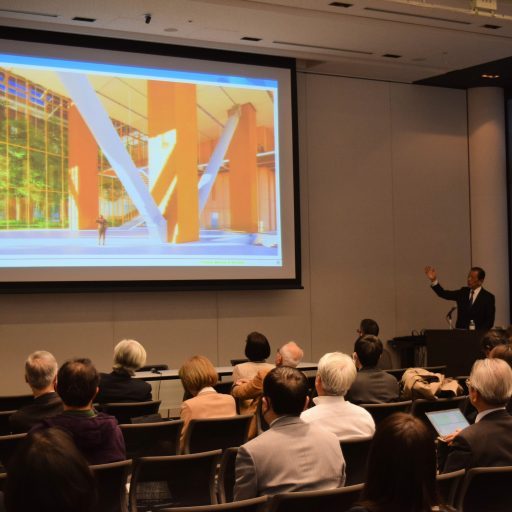Project Assistant Professor, GSID, Nagoya University
Alla OLIFIRENKO
On April 24, 2024, I had the chance to accompany Prof. Keiko Zaima on a visit to three exciting locations.
The first of them was the Meiji Electric Industries Co., Ltd., a Japanese company specialising in manufacturing electrical equipment and systems for business, including hydrogen energy solutions.
At the company's Toyota branch in Chiryu City (Aichi Prefecture), we were given a tour of a “mini hydrogen power plant” that is used to supplement heating in winter and cooling in summer. Naturally, the company offers similar solutions to their clients. The company's pure hydrogen fuel cell system is now commercially available and is used at the Kawasaki King Skyfront Tokyu REI Hotel, which we visited the same day.
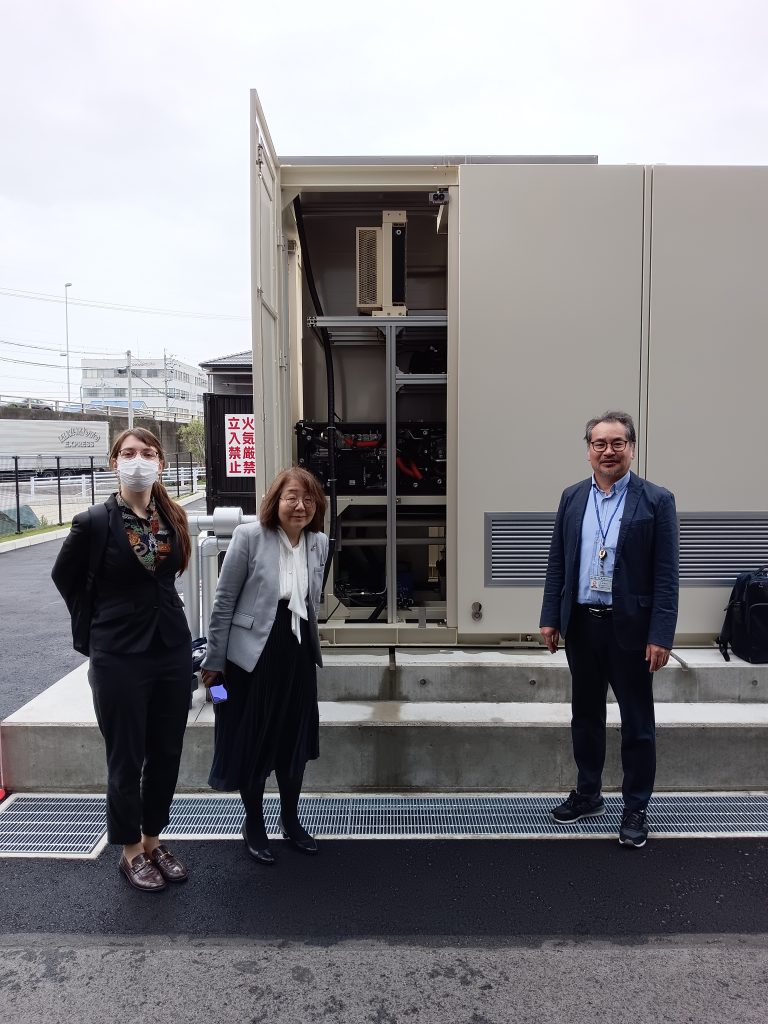
Next we headed to Kawasaki City Hall in Kanagawa Prefecture. Kawasaki City was once notorious for industrial pollution in the industrial complexes that formed along the Tama River waterfront and the Tokyo Bay coastal area.
However, the city has made progress in environmental measures and is now attracting attention as a model area for promoting carbon neutrality. Through policies such as the Kawasaki Carbon Zero Challenge 2050, Kawasaki City is working to provide clean energy, increase carbon recycling rates, and optimize electricity consumption throughout the region.
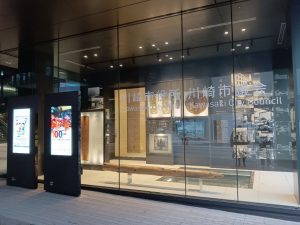
In 2015, Kawasaki became the first city in Japan to formulate a pioneering hydrogen strategy, and has been working with companies on demonstration projects and other initiatives to establish hydrogen supply chains in Japan and abroad.
For example, the “Regional Collaboration and Low Carbon Hydrogen Technology Demonstration Project - Regional Recycling Model for Low-Carbon Hydrogen Derived from Used Plastics”, led by Showa Denko K.K. (now Resonac Corporation) was designated as a demonstration project for the construction of a hydrogen supply chain by the Ministry of the Environment. It was launched in 2015 and concluded in 2021. Various projects are currently underway to expand the supply and demand of carbon dioxide-free hydrogen by taking advantage of the extensive pipeline infrastructure and concentration of hydrogen-related companies in the coastal industrial complex.
I hope that Kawasaki will soon become a model region for Japan's transition to carbon neutrality, and its enthusiasm will inspire similar efforts nationwide.
Our final stop was the Kawasaki King Skyfront Tokyu REI Hotel, “the world's first hydrogen hotel. This hotel participated in the aforementioned Kawasaki City Regional Collaboration and Low Carbon Hydrogen Technology Demonstration Project, and has continued to use hydrogen on its own after the project was completed.
Beside the front of the hotel is a Pure Hydrogen Energy Stationary Fuel Cell Generator, manufactured by the company we visited, Meiji Electric Industries Co., Ltd. The unit is equipped with a hydrogen fuel cell and a hydrogen storage tank. The hotel uses electricity generated by this device to cover about 20% of its electricity needs, and the remainder is generated by biomass, mainly from food scraps generated by the hotel.
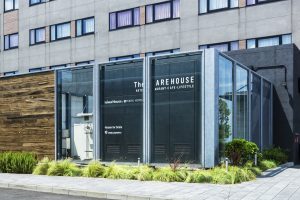
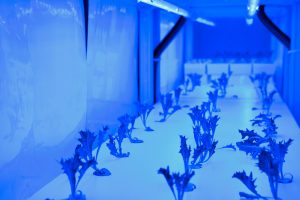
The Kawasaki King Sky Front Tokyu REI Hotel is only 10 minutes from Haneda Airport (Ota-ku, Tokyo) by free shuttle bus, and on the day of our visit, there were many guests from overseas.
In addition to being a comfortable hotel, we felt that this unique attempt to become the world's first hydrogen hotel played an important role in the shift to carbon neutrality.



